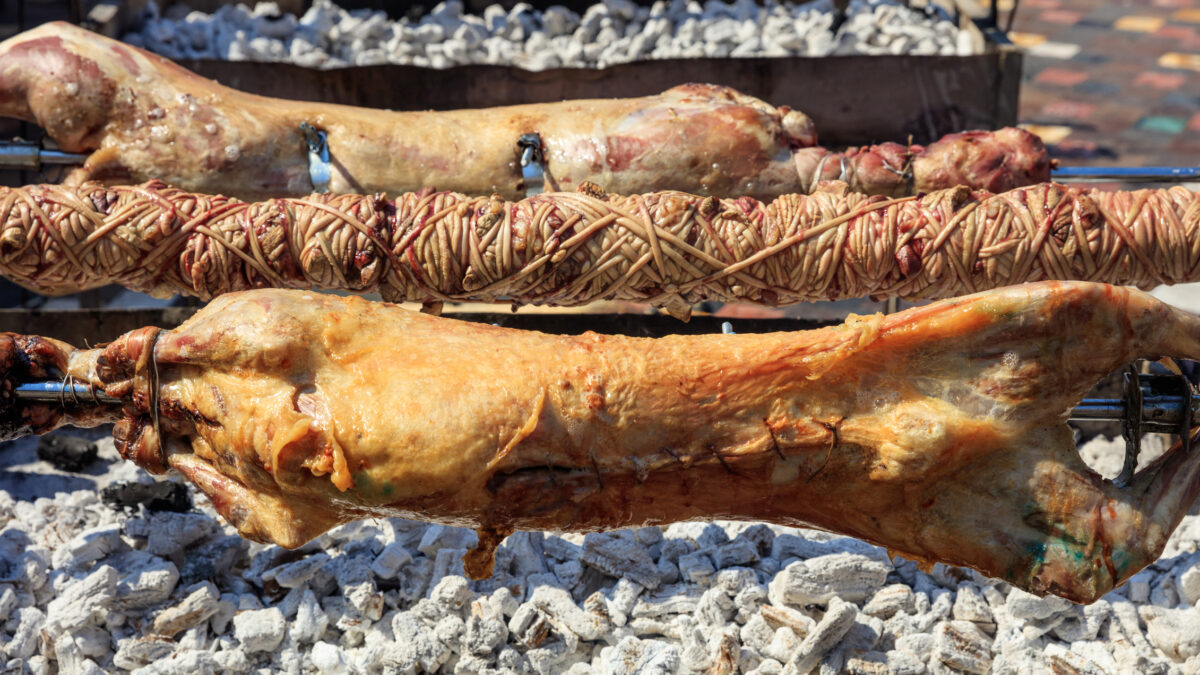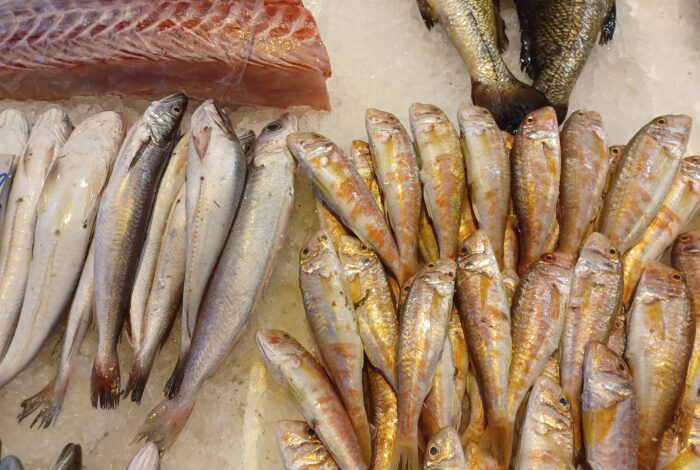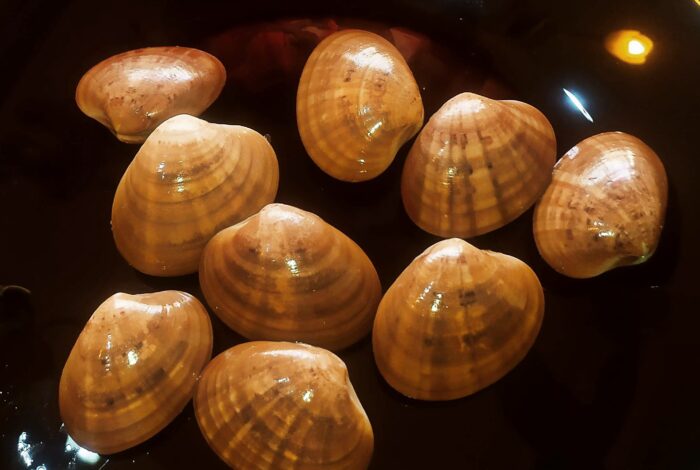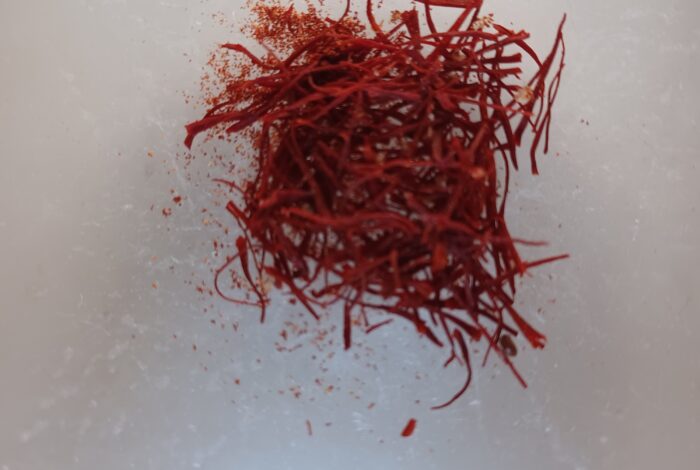Easter in Greece is the most important religious holiday of the year and is accompanied by rich gastronomic traditions. The Greek Orthodox Church mandates a strict fast in the 40 days before Easter, which ends at 24:00 on Holy Saturday, following the Resurrection of Christ.
At that point, late at night, ‘magiritsa’ is served – the traditional Resurrection soup made with lamb offal, lettuce, rice, and an avgolemono sauce.
Easter meals are lavish affairs, centred on lamb prepared with care and respect for tradition.
The main attraction is ‘Ovelias’, spit-roasted lamb or goat. The lamb is prepared with salt, pepper and herbs and is slow-cooked over hot coals. It is a symbol of Christ’s sacrifice and is a hallmark of Easter in many regions of Greece, such as Central Greece, the Peloponnese and Macedonia.
Another traditional dish cooked side by side with ‘Ovelias’ is ‘kokoretsi’, made with lamb intestines and offal and spit-roasted. In many parts of the country, ‘tzigerosarmades’ are also served – a delicacy made with rice and lamb offal. Together with kokoretsi and magiritsa, they belong to the most distinctive dishes of Greek tradition.
In Crete, lamb is often prepared ‘antikristo’ style – arranged in a specific way around the fire. In Epirus, lamb is stuffed with rice, herbs and liver. In Thessaly, lamb roasted in the oven with potatoes is among the most popular dishes, often accompanied by cheese or herb pies.
On the Greek islands, lamb and goat remain the dishes of the day, with many variations, such as baked in the oven with tender spring greens and rice, filled with cheese, or slow-cooked in a traditional clay pot.
The main course is often accompanied by oven-roasted potatoes with oregano and lemon, fresh spring salads, and of course the classic Greek side dish, tzatziki. Made from yoghurt, garlic, cucumber and dill, it is the ideal accompaniment to lamb or goat.
Easter meals are long affairs, usually capped off with sweets such as ‘tsoureki’, a type of sweet aromatic bread with hints of mastic, Greek Easter cookies with notes of vanilla or orange, and other, traditional syrupy desserts.
Easter meals in Greece are truly something special. The revelry lasts throughout the day, a community experience for all participants. It is a prime example of Greek hospitality and an experience that every visitor should have, not only as a guest but also by taking part in its preparation.










